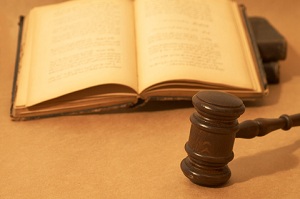About copyright law

Copyright Law originated in 1710, as laid down in the "Statute of Anne" in Great Britain (Copyright Act 1709 8 Anne c.19). It was enacted in 1709, but didn't come into force until April 10, 1710. Through this act the author's rights became protected.
At the time of the Statute of Anne, copyright lasted for only fourteen years, but nowadays the duration of copyright protection is fifty to hundred years after the death of the author. The act came into existence because publishers profited from printing copies of the work without remunerating the author. The act was established "for the encouragement of learned men to compose and write useful books". The Statute of Anne allowed authors to earn a living from their work. The act formed the beginning of copyright protection, of Copyright Law.
The Berne Convention
In 1886 the "Berne Convention for the protection of literary and artistic works" was held to further protect artists, musicians, photographers, designers etc. A fundamental new principle was laid down, namely that copyright automatically exists from the day a creative work is available in a tangible form (for instance when it is recorded, or written down). The Berne Convention also states that the creator of a work doesn't need to apply for copyright, or to register it.* It automatically exists once it has been put it into a fixed form.
* Registering for proof of copyright through Copyright House does not make you the copyright owner. Registering your work at Copyright House provides you with a proof that you are the owner of a creative work since a certain date and time.
The Berne Convention also declared that authors from all the 164 countries who have signed up to the convention have to be treated the same way as domestic ones.
Other copyright conventions were: the Buenos Aires Convention held in 1910 and the Universal Copyright Convention in 1952.
Copyright applies to...
Copyright applies to creative, artistic, intellectual, or scientific works. Following is a list of works to which copyright applies:
musical compositions
audio recordings
theses
plays
poems
literary works
films
dances
paintings
sculptures
drawings
photographs
software
web designs
radio
television
broadcasts
Ideas aren't covered by the Copyright Law. These would come under the category of "patents". Likewise, names and titles fall into the category of "trade marks". Also, you can't copyright derivatives of an existing work, because the work has to be original. For instance if you make a new arrangement, or a new orchestration to an existing melody, then the author of the original melody is still the copyright holder.
If you would like to link to this page, you can copy and paste the following code into your web page:
Copyright Law
Next: What copyright doesn't protect